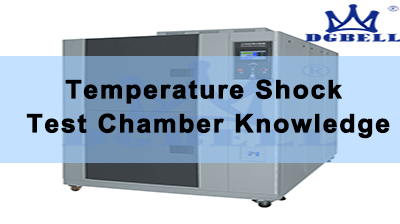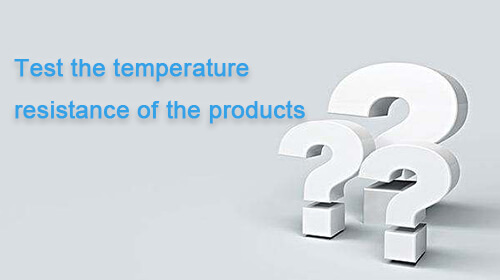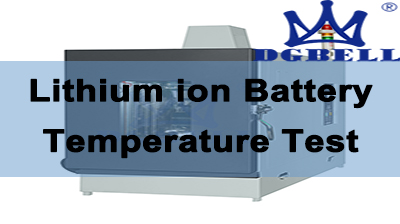Bài viết mới
Thử nghiệm nhiệt độ pin Lithium ion
Về An toàn của Pin Lithium EV — Sự thoát nhiệt
Categories
- Tin Tức 1
- Tin Tức Công Nghệ 234
- Tin Tức Công Ty 13
- Triển Lãm 10
Nội dung chính

The ECE R100 standard test instructions are crucial for battery-electric car safety. The ECE R100 testing requirements for lithium-ion batteries apply to an all-electric powertrain in several vehicle classifications of N and M using a rate breaking stage of 25km/h. The ECE R100 requirements of electric vehicles employ their electrical health and use its electric energy stockpiling frameworks. ECE R100 Rev2 certificate is just one of the very crucial European demands for its endorsement of street electric vehicles. The ECE R100 principle test for lithium-ion batteries comprises the battery being stressed within ECE R100 battery test chambers, where different test assortments occur. These tests ensure both enhanced performance and safe utilization of lithium-ion batteries.
What is ECE R100 Test Standard?
The ECE R100 battery test chambers are supposed to guarantee the safe functioning of rechargeable batteries under expected operating requirements and supply a higher degree of security for automobile drivers. It’s possible because the ECE R100 regular tests for lithium-ion batteries are entirely analyzed from electrical, mechanical, and environmental risks to ensure the most intense well-being applications. The ECE R100 battery testing standard is accountable for strengthening the health and enhanced lithium-ion batteries’ execution for electric vehicles. Additionally, it recognizes zones about lithium-ion batteries that require improvement.
Following the use of lithium-ion batteries in electric vehicles determined by specialists’ latest discovery attests that supplanting graphite anodes with lithium metallic pulse in electric vehicles assist its exhibition. There is no doubt that more revelations will be generated utilizing lithium-ion batteries in electric cars in light of the benefits of using the ECE R100 evaluation guidelines and rules.
What is the Revision 2 ECE R100 Test?
UN ECE Regulation No. 100 (also known as ECE R100) addresses the security requirements particular to the electrical power train of street vehicles such as rechargeable battery systems. Initially printed in 1996, the law was revised in 2011 to maintain pace with new technologies.
ECE R100 Revision 2 kind approval is currently required on new electrical car types entering agencies in Europe. These evaluations comprise vibration testing, thermal shock testing, fire immunity (immersion in gasoline fire), over-temperature, overcharge, and over-discharge testing. Additionally, DGBell has completed the testing for this new law, where possible, which offers system-level security through contactors and other security devices.
Types of Test Required for Lithium Battery Reaching Revision 2 ECE R100 Standard
-
Vibration Test
The test verifies the security performance under vibration conditions very similar to those experienced under normal vehicle operations. The device under test is subject to some vibration using a sinusoidal waveform using a logarithmic sweep between 7 Hz and 50 Hz and back to 7 Hz at the length of 15 minutes. This sweep is replicated 12 times for an entire test period of 3 hours.
-
Thermal shock and Cycling Test
It assesses the immunity of a RESS to abrupt changes in temperature very similar to those experienced in real environmental problems. The device under test is saved for at least half an hour at 60 degrees Celsius, followed by half an hour at -40 degrees Celsius. This cycle has been repeated five times, followed by storage of this unit at ambient temperatures for 24 hours.
-
Mechanical Crash Test
It verifies the security performance of a RESS beneath inertial loads, which may happen in automobile crash conditions. The machine under test is accelerated or decelerated at rates given in the tables accompanying the Legislation, and the genuine gravitational force is contrasted with the values given in the tables.
-
Over-temperature Protection
It verifies a device’s operation against inner combustion during the performance no matter what the situation is such as – the device cooling feature is damaged. The Battery undergoes the charging and discharging process repeatedly using a continuous current to improve cells’ temperature. The unit is then placed in a convection oven or living room, and the temperature of the oven or room is gradually improved to a predetermined amount.
-
Short Circuit Safety
The test verifies a device’s short circuit security system’s operation to limit effects related to short circuits. The battery which will be tested intentionally shorted by connecting the apparatus’s positive and negative terminal, employing a connection using a specific immunity. The short circuit condition is continuing before the role of this short circuit protection could be verified, or for a minimum of one hour following the temperature measured on the apparatus casing has stabilized.
-
Overcharge security
It assesses the operation of a device’s overcharge defense system. The device under test is billed until the apparatus automatically interrupts or restricts the charging or before the unit is billed to double its rated capability. We keep discharging the battery until it disrupts or restricts the release or whenever the unit is discharged to 25 percent of its nominal voltage level.
How to Choose Battery Test Chamber for Specific ECE R100 Test?
In reality, the law specifies all evaluations required for lithium-ion batteries installed on 4-wheel electric vehicles to transport goods or persons of street vehicles of categories N and M using electrical traction. Regardless of how the oppressed batteries within the test chamber are manhandled under different testing phases like vibration evaluations, heat stun, and biking tests, imperviousness to flame evaluations, external short out evaluations, etc. to select lithium-ion battery reactions on usual problems.
Electrode Coating Process
- Battery Dry Chamber
Aging Test
- Temperature Booth for Battery Aging
- Walk-in Environmental Chamber
Cell Complete & Inspection
- Battery Impedance Evaluation System
- Advanced Battery Tester
- High-power Battery Tester
- Module Complete & Inspection
- Temperature & Humidity Chamber for Efficient Charge and DischargeTest
- BenchtopType Temperature & Humidity Test Chamber
- Constant Climate Chamber
- Airborne Test Chamber for Batteries
- Temperature & Vibration Combined Environmental Test Chamber
Evaluation Test
- Crush Test System
- External Short Circuit Test System Test
Consequences of the Second Revision ECE R100 Test for EV Manufacturers
RESS testing requirements under the next revision of ECE R100 are somewhat more extensive than previous variants of this law. Also, the obligation for obtaining type approval could change to RESSs manufacturing companies. RESS producers and automobile manufacturers must take steps to cover the new type acceptance requirements before their July 2016 mandate. On the other hand, the regulation of a new strategy to form approval may provide manufactures with fresh market opportunities. Because automobile manufacturers will have the ability to pick type-approved RESSs through the design and development procedure that best fit their particular needs. They can alter RESSs in manufacturing automobiles without submitting their automobile for a complete kind inspection.
Conclusion
The next revision of ECE R100 introduces new testing requirements for producers of rechargeable battery systems for electric vehicles. It simplifies the existing type-approval system, a shift that’s very likely to raise competition in the RESS market. DGBell has finished this most challenging collection of evaluations to assist our clients throughout the tough ECE R100 Revision 2 kind attributes for battery-powered vehicles. This testing underscores the requirement for your car manufacturer to replicate at least one of these evaluations throughout their final sign-off using IDIADA, which radically reduces OEM time to market, wherever they are situated in Europe.











